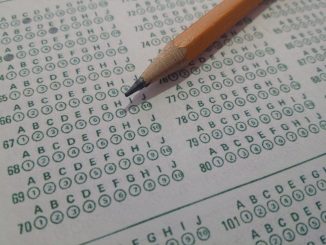RALEIGH — At a May 21 meeting, remote instruction plans were approved by North Carolina’s State Board of Education for the upcoming 2020-21 school year.
The SBE was required to create the plans per Senate Bill 704, which is one of the two COVID-19 legislation bills passed by the General Assembly and signed into law by Gov. Roy Cooper. The plans must be submitted to the legislature by July 20, 2020.
The law directs the SBE to consult with “teachers, administrators and instructional support staff, parents, students, community partners, and other stakeholders” in developing the remote learning plans.
Presentations from the Department of Public Instruction on the topic were given by Sneha Shah-Coltrane, director of the Division of Advanced Learning and Gifted Education; and Dr. Vanessa Wrenn, director of Digital Teaching and Learning.
Requirements for remote instruction plans sought by lawmakers are: training for teachers and staff, teaching and practice opportunities for students on accessing and using remote instruction platforms and methods, and communicating learning targets to students on each remote instruction day with lesson designs to demonstrate learning. Additionally, the plans should include tracking and reporting of attendance on remote instruction days, online and offline contact options for student-teacher or staff communication, and technology support for students.
One of the plan components touches on the “homework gap,” a metric showing how access to the internet is a barrier for some lower-income students. The SBE plans are required to survey home connectivity for students and teachers and adjust remote instruction for those with limited connectivity capability.
While there are 13 total specifications in the legislation, the SBE added two more. The new additions include addressing needs and issues for students who are English-language learners, those who are academically and intellectually gifted and those who are homeless or tackling the issue of the availability of broadband and the need for technology or devices.
Board Member James Ford said that “equity” in remote learning was one of his primary concerns.
“We need to be mindful that this is one of many additional requirements that districts must now meet,” Board Chairman Eric Davis said, adding that broadband access “is just as critical as electricity, water, sewer and other public utilities for the quality of life for every North Carolinian.”
Shah-Coltrane near the end of the presentation said that broadband and connectivity issues were “incredibly important issues” for superintendents and other school leaders.
Davis also said, “The private sector will not fill this gap.”
Technology and broadband companies do appear to be stepping up during the COVID-19 outbreak. In mid-May, the FCC announced that over 750 broadband and telephone providers entered into the Keep Americans Connected Pledge, with a commitment lasting through June 30.
The North Carolina Department of Information Technology has also created a resource for tracking down new and existing free or affordable service offerings across the state. DIT’s resource list includes an interactive map for locating resources and providers.


